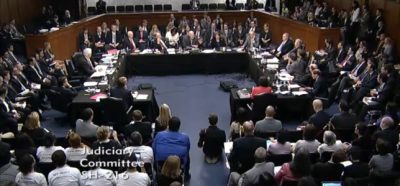Elections

How the 2014 Midterm Elections Could be Impacted by Immigration
By Tom K. Wong, Ph.D., Assistant Professor of Political Science at the University of California, San Diego. Despite hopes that 2013 would be the year of comprehensive immigration reform, legislation stalled in the House and the year ended without a bill. Since the House reconvened Tuesday, 427 days have passed since the November 2012 elections and 194 days since S.744, the Senate comprehensive immigration reform bill that includes a path to citizenship, passed by a vote of 68 to 32. Whether they realize it or not, the political fortunes of some may rise or fall this year based on the position they take on immigration reform. Read More

How Latino and Asian Voters Made the Difference in 2013 Gubernatorial Elections
In a Dickensian tale of two campaigns for governor, the Republican Party watched two very different strategies unfold on how to embrace or reject Latino voters on Tuesday. A majority of Latino voters voted for New Jersey Gov. Chris Christie as he soundly won reelection, while Ken Cuccinelli lost his campaign to be Virginia’s governor after alienating Latinos with his anti-immigrant positions. As Jordan Fabian at Fusion explains, Christie offered Republicans a path for how to make inroads with Latinos, but “Cuccinelli’s campaign, on the other hand, fell into the same traps that have doomed Republicans in the last two elections.” Read More

Latino Voters Poised to Again Play Key Role in Elections
One year after the 2012 elections, in which the Latino vote played a pivotal role in the re-election of President Obama, the Republican Party is still attempting to figure out how to attract Latinos and new immigrant voters to the fold. Tomorrow, voters head to the polls to decide several state elections and the gubernatorial races in New Jersey and Virginia, and it looks like how a politician talks about immigration will continue to be a litmus test for Latino and Asian voters—many of whom see immigration as a personal issue. Consequently, the contrast between the Virginia and New Jersey races couldn’t be more telling. Read More

New Report Provides Specific Measures of Latino, Asian, and Immigrant Voters in Upcoming Elections
Following the 2012 presidential election, many Republican leaders and pundits concluded that Mitt Romney’s position on immigration hurt him with a range of voters, particularly Latinos and Asians. As a result, senior Republicans began to argue that immigration reform was not only inevitable, but was vital to the survival of the Republican Party. While this philosophy has been embraced by many national leaders, some rank-and-file congressional Republicans in districts where non-Latino white voters are still in the majority have found the argument less compelling. Read More

Stepping Up: The Impact of the Newest Immigrant, Asian, and Latino Voters
This analysis of immigration trends and the demographic composition of U.S. House districts shows that numerous congressional districts have emerging electorates who have many reasons to care deeply about immigration reform. Read More

Two Steps Forward, One Step Back: The RNC on Immigration Reform
The Republican National Committee took two steps forward last week when they passed a resolution calling on Congress to get immigration reform done by year’s end, but took one step back by suggesting Congress offer legal status, but no path to citizenship for the currently undocumented population. This was followed by statements from Rep. Bob Goodlatte, Chairman of the House Judiciary Committee this week, who declared that he does not support a path to citizenship for DREAMers, and no immediate status for their parents. This illustrates just how much further the party has to go before it is in sync with a growing number of its own members—several of whom have just begun to declare their support for a path to citizenship —and the vast majority of the public, who support immigration reform and full citizenship for the undocumented. Read More

Turning up the Heat on Congress Over Summer Recess
August recess is in full swing, and the plans to show Congress how badly Americans want immigration reform “back home” are well under way. While August is always a time to remind Members of Congress about crucial issues, this year’s immigration events, meetings, and rallies are occurring at a time when Members of Congress, particularly House Republicans, are seriously re-examining their positions on immigration. This may be the most critical month for capturing the hearts and minds of House Members. Read More

What Does the Success of the Mark-Up Tell us About the Coming Full Senate Vote on Immigration?
One year ago, with the presidential race in full swing and proponents of self-deportation making the headlines, it would have been difficult to predict the extraordinary vote that took place Tuesday in the Senate Judiciary Committee. Ten Democrats and three Republicans voted to pass S. 744 out of committee and send a comprehensive immigration bill to the Senate floor. This could never have happened without the overwhelming support for immigration reform that the public has shown, particularly since the November 2012 election. Even with that support, however, there was no guarantee that the long, slow process of negotiating and drafting a bipartisan bill that could succeed in committee (and then the Senate floor) would ever come to fruition. And once a bill is introduced, getting it through committee requires a mix of political acumen to keep the bill alive. Read More

Survey: Asian Americans Concerned with Legalization, Family Backlogs
In the current debate, immigration is often depicted as a Latino issue. This is partially because just over half of America’s foreign-born population is from Latin America and the Caribbean, and the current political climate around immigration is largely seen as being driven by Latino turnout for Democrats in the 2012 election. But this depiction glosses over the millions of immigrants – documented and undocumented – who hail from other parts of the globe. Read More

Getting to a Citizenship Consensus
Immigration reform is enjoying a resurgence of support in both parties, with groups from a variety of backgrounds coming out in favor of a range of changes to our current system. The most striking change may be the melting of opposition to a pathway to citizenship for the 11 million undocumented immigrants in the U.S. But acceding to citizenship and creating a system that will actually allow people to get there are two different things. Read More
Make a contribution
Make a direct impact on the lives of immigrants.
